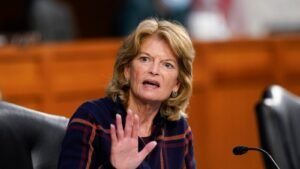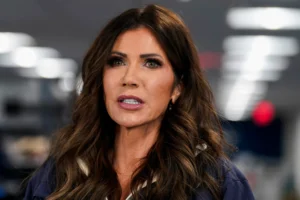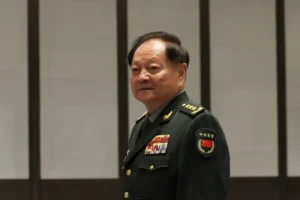Vice President JD Vance has emerged as one of the most influential conservative voices in American politics. Once best known for his best-selling memoir Hillbilly Elegy, Vance now serves as the 49th Vice President of the United States, working alongside President Donald Trump during his second term, which began in January 2025. His rise from a working-class upbringing in Ohio to holding the nation’s second-highest office has captured national attention.
Born on August 2, 1984, in Middletown, Ohio, James David Vance was raised by his grandparents in a struggling Rust Belt town. His early life was marked by hardship, instability, and family challenges, which he later chronicled in Hillbilly Elegy: A Memoir of a Family and Culture in Crisis, published in 2016. The memoir became a cultural phenomenon, shedding light on the lives of working-class Americans in Appalachia and sparking national debates on poverty, addiction, and opportunity. It was later adapted into a Netflix film in 2020.
Before entering politics, Vance served in the U.S. Marine Corps, including a tour in Iraq. He earned his undergraduate degree from Ohio State University and went on to graduate from Yale Law School. His professional journey included work at a venture capital firm linked to tech billionaire Peter Thiel, a key supporter who would later play a major role in funding Vance’s Senate campaign. Vance also co-founded Narya Capital, a Cincinnati-based venture capital firm aimed at investing in American innovation.
Though Vance initially criticized Donald Trump during the 2016 election, he eventually became a vocal supporter. His political transformation coincided with a broader shift within the Republican Party, embracing populist and nationalist ideas. In 2022, Vance ran for the U.S. Senate in Ohio and won, becoming a prominent member of the Senate aligned with Trump’s America First agenda. He built a reputation for championing blue-collar issues, opposing globalization, and supporting stricter immigration laws.
Vance’s selection as Trump’s running mate for the 2024 election was seen as a strategic move. His appeal among working-class voters, his military background, and his conservative values helped solidify support in key swing states. After a contentious election, the Trump-Vance ticket won, and Vance was sworn in as Vice President on January 20, 2025.
As Vice President, JD Vance has continued to shape public policy debates, particularly on issues related to trade, immigration, and economic nationalism. He is considered a rising star in the Republican Party and a potential future presidential candidate. Despite his loyalty to Trump, Vance has managed to maintain a somewhat distinct public image, presenting himself as a thoughtful, articulate leader rooted in traditional American values.
In a recent YouGov favorability poll for the second quarter of 2025, Vice President JD Vance ranked 14th among political figures with a 38 percent approval rating. This placed him above former President Trump, who scored 37 percent. His ability to connect with everyday Americans and his relatively steady reputation have contributed to his positive polling numbers. Compared to more polarizing figures, Vance is often seen as a calm and collected presence in Washington.
Vance’s policy views reflect a populist conservative philosophy. He advocates for protecting American manufacturing, reducing dependence on foreign labor, and restoring cultural values he believes have been eroded. He supports trade tariffs and has backed strict border controls. At the same time, he believes in using government power to help American families and workers, a stance that breaks from traditional small-government conservatism.
Though still early in his vice presidency, JD Vance has already begun shaping the national conversation. His combination of military service, intellectual credentials, and cultural relevance has given him a unique platform. Whether he becomes a long-term leader in the Republican Party remains to be seen, but his influence in 2025 is undeniable. As political dynamics continue to evolve, Vice President JD Vance will likely remain at the center of America’s political future.







